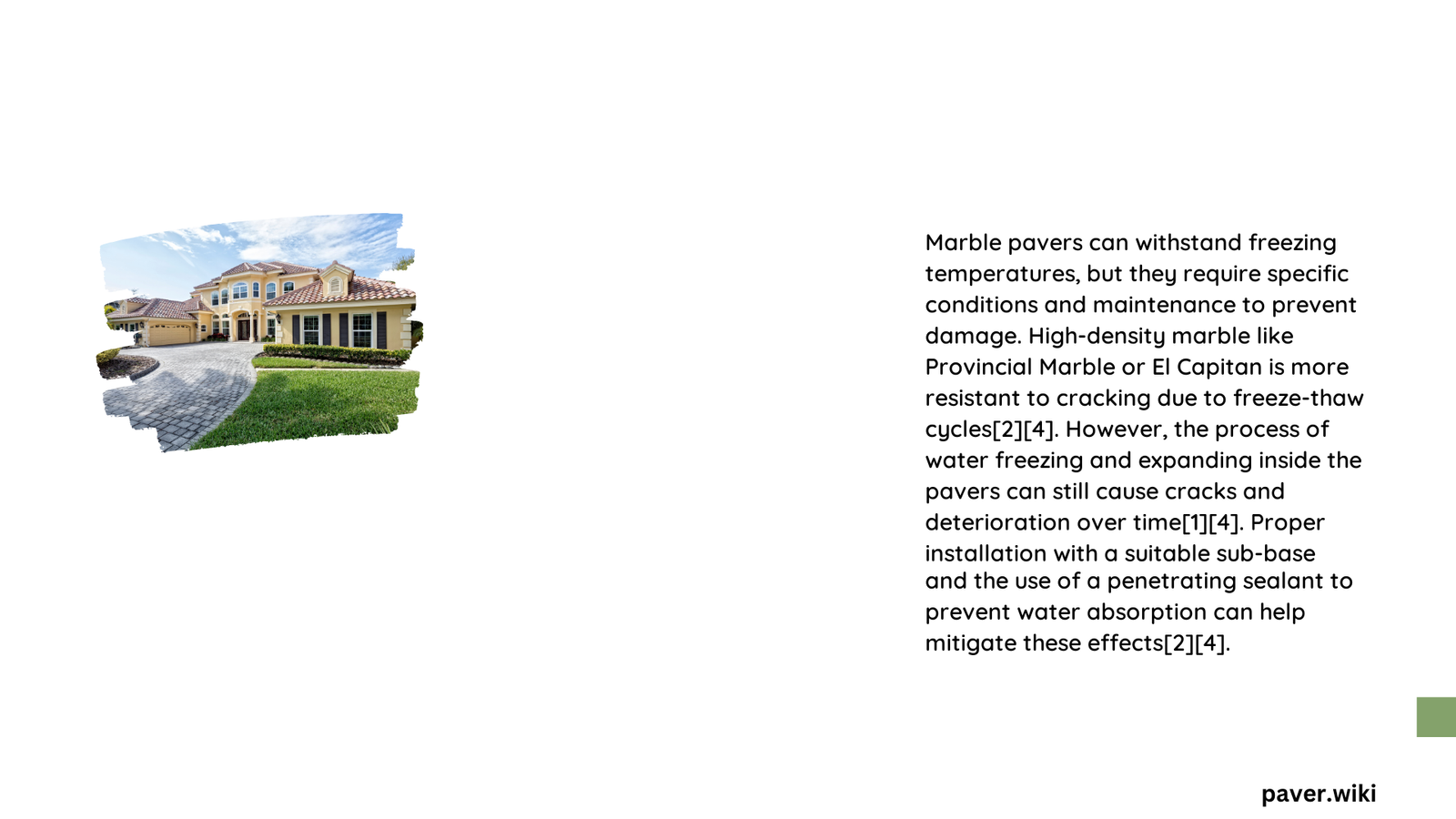Marble pavers present a complex challenge in freezing environments, where their survival depends on multiple factors including density, water absorption rates, installation techniques, and ongoing maintenance. While some high-density marble varieties can withstand cold temperatures, others may suffer significant damage during repeated freeze-thaw cycles, making careful selection and professional installation critical for long-term durability and aesthetic preservation.
What Determines Marble Pavers’ Freeze Resistance?
How Does Water Absorption Impact Freeze Durability?
Water absorption plays a crucial role in determining marble pavers’ ability to withstand freezing temperatures. The more porous the marble, the higher the risk of damage during freeze-thaw cycles.
| Marble Type | Water Absorption Rate | Freeze Resistance |
|---|---|---|
| High-Density Marble | Low (< 0.5%) | Excellent |
| Medium-Density Marble | Medium (0.5-2%) | Moderate |
| Low-Density Marble | High (> 2%) | Poor |
Key Factors Affecting Freeze Resistance:
- Marble Density: Higher density reduces water penetration
- Porosity: Lower porosity minimizes internal pressure during freezing
- Installation Quality: Proper base preparation reduces stress
- Sealing Techniques: Protective sealants prevent water absorption
What Protective Strategies Enhance Marble Paver Durability?
Homeowners and contractors can implement several strategies to protect marble pavers from freeze-related damage:
- Professional Sealing
- Use penetrating sealants specifically designed for natural stone
- Apply sealant before winter season
-
Reapply every 1-2 years
-
Drainage Optimization
- Ensure proper slope for water runoff
- Use gravel or sand base with excellent drainage properties
-
Avoid water pooling around paver surfaces
-
Winter Maintenance Practices
- Avoid using rock salt or harsh chemical deicers
- Use sand or calcium magnesium acetate for traction
- Remove snow promptly to prevent prolonged moisture exposure
Can All Marble Pavers Survive Cold Climates?
Not all marble pavers are created equal. Some varieties demonstrate superior freeze resistance:
- Recommended Marble Types:
- Carrara Marble
- Calacatta Marble
-
High-density metamorphic marble variants
-
Marble Types to Avoid in Freezing Regions:
- Soft, highly porous marble
- Marble with significant mineral variations
- Low-density sedimentary marble
What Are the Economic Considerations?
Investing in freeze-resistant marble pavers involves considering long-term costs:
- Initial Investment: Higher-quality, dense marble costs more
- Maintenance Expenses: Professional sealing and care
- Potential Replacement Costs: Improper selection can lead to premature failure
Expert Recommendations

Professional landscapers recommend:
– Consulting local stone specialists
– Conducting site-specific assessments
– Prioritizing professional installation
Conclusion
While marble pavers can withstand freezing temperatures with proper selection, installation, and maintenance, success depends on multiple interconnected factors. Homeowners must approach marble paver selection with a strategic, informed perspective.
